THE FORGOTTEN POTTERY MAKERS
Prosperity is the hallmark Morocco is known for. Although, this aspect seems different and disturbing in the villages belonging to the tribe of "Fran Ali," where the houses are situated a few kilometers from the Mediterranean Sea. A long dirty road built out of red clay and a few blocks of cement is the only way to get to these villages.
As a result of the lack of public transportation that connects to these villages, many children drop out of school, further increasing the isolation of these people, even though they live close to the city of Wad Lao, which is a great tourist destination in the summer.
Moroccan women, especially the pottery makers in this village, hoped to improve their situation, only to be repeatedly disappointed. All the promises made by the municipality and the associations are just words with no action.
On our first visit, a shop owner told us that we arrived at Fran Ali, a village that has been famous for making pottery for decades.
Nearby, a woman was grinding the red soil with her hands and a long stick. When she heard us talking to the shopkeeper, she vanished from our view. We tried to wait for her to return for an interview, to no avail. On the other side, a second woman was watching us and keeping her distance, while another woman was washing her laundry at the only water spring in the village.
We headed towards them and asked what was going on in the women pottery makers association. She denied the existence of such association, but still, she advised us to knock on people's doors and ask about local the pottery, before heading back. The one who was watching us welcomed us warmly and invited us to her small workshop, that she dedicated to making pottery, in front of her house.
It was a sunny day, which called on all the villagers to put their pots of various shapes and sizes under the sun. We sat with the woman and her children while she asked her daughter to prepare tea. A few minutes later, her husband asked us to not have a press interview with his wife and to not take pictures, despite his wife's attempts to calm his anger. He told us that he was "psychologically unstable," so we quietly withdrew away from him.
We went up the rocky hills, where all the houses of Fran Ali tribe are located. The women evaded the interview attempts before one of them expressed her anger, "our work is very tiring, and no one is paying attention to our physical and moral suffering," she said. "What can I say to you, don’t you see how we are? Don't you see what we wear? How we are covered in dust? Do you want to see where the dust came from? Will anyone bat an eye me in case the clay oven fell over my head?"
Remind you, they burn the clay in the oven after it has been formed and dried, and it is available for every house in the village.
After smart attempts to drag her to talk more, she said that "foreign visitors came to the village and promised to help us, as well as many associations, but nothing happened.” This has led women to remain silent in front of everyone visiting their village.
Faran Ali women usually specialize in pottery making using the local skills they have acquired from their grandparents. These women—regardless of their health or social status, are responsible for bringing the red soil of the pottery every morning. Therefore, women bring donkeys and small shovels to burrow the ground and extract the two types of soil: one for kneading, and the other for coloring. Nonetheless, Latifa Boukhout, who lives outside the village, points out that "digging is unsafe, it has killed more than a hundred people." She added that "the villagers’ voices, their suffering, their limited knowledge of digging and its dangers, did not reach outside the village."
After bringing the dirt, the women deliberately grind it in traditional ways, using their arms and sticks before winnowing it and kneading it. Then, they sit in their small workshops that can be seen in front of their homes and start to form "tajin" also known as "fire fumes" or pottery, among others. Most of the products are devoted to domestic use. In the next step, they leave them under the sun for a day or more, then they put these utensils in the traditional clay ovens preparing for the last stage… the oven.
It should be noted that many utensils break after the last stage, and cannot be used after that.
We left Fran Ali without being able to conduct any interviews. Women insisted on remaining silent. They are from conservative families; hence it could subject their families to criticism and bullying. They used to be desperate because they had expected from certain associations to care for their business and products, but the promises were never taken seriously, while they also suspect that they will not be provided with assistance from a traditional industry institution either.
In the village of Oshtam near Fran Ali, Latifa Boukhuth was working with her three daughters in pottery formation. Her husband, who has been unemployed for years, helps bring them dust, but that is about it. Boukhuth has been practicing this profession for 28 years, her first experience being in her family's home in Fran Ali when she was only 16 years old. This is a tradition followed by most of the daughters of that village. In Oshtam, the profession is confined to six women who come from Fran Ali.
Boukhuth says that she faces several challenges: first, the search for firewood to ignite the furnace, because the use of forest trees violates the laws of overgrazing. Then, comes the trouble of searching for suitable soil, as she does not have her own land to extract from it, and then there is the issue of selling products that require work from 7 am to 10 pm. These women are not able to sell them outside their villages. Boukhuth also faces challenges during winter when the weather does not allow her to dry her products we quickly, leaving her a week or more without work. It should be noted that if women do not work daily, their families will be forced to borrow food, drink, and provide electricity from the remote village of Ban Qarich. Boukhuth was able to educate her daughters up to the sixth grade; however, the distant schools and the paved road did not help encourage them to complete their education. Boukhuth and other women know that their products are sold for a higher price in other places, but as we can see, it is extremely difficult for them socially and geographically to claim their rights and change their situation for better.
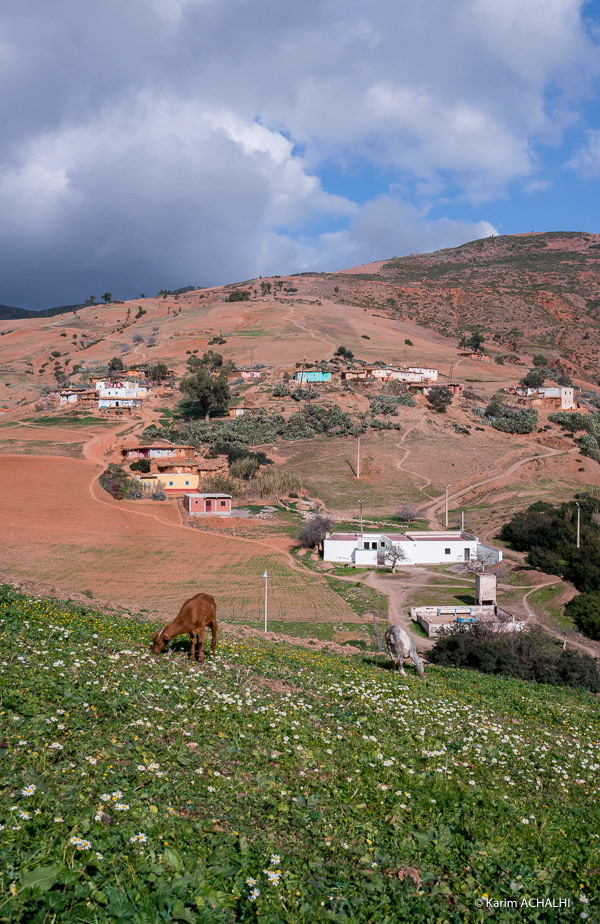
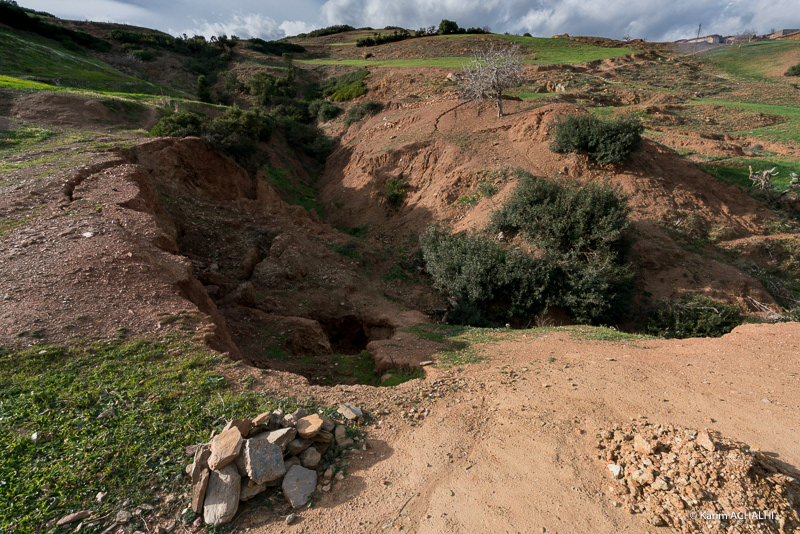
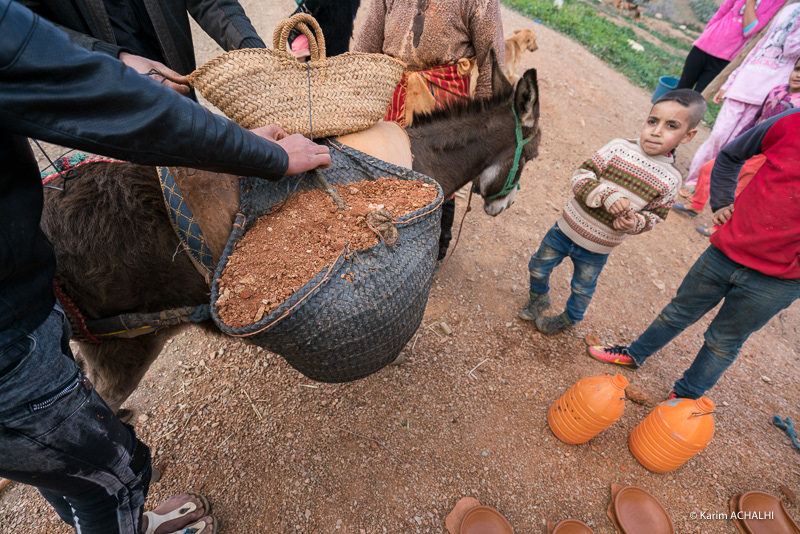
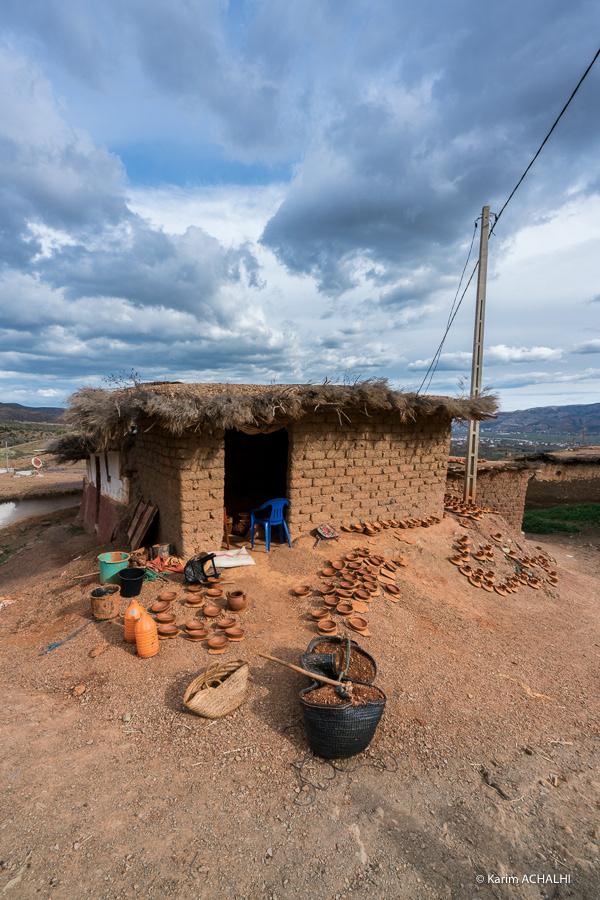
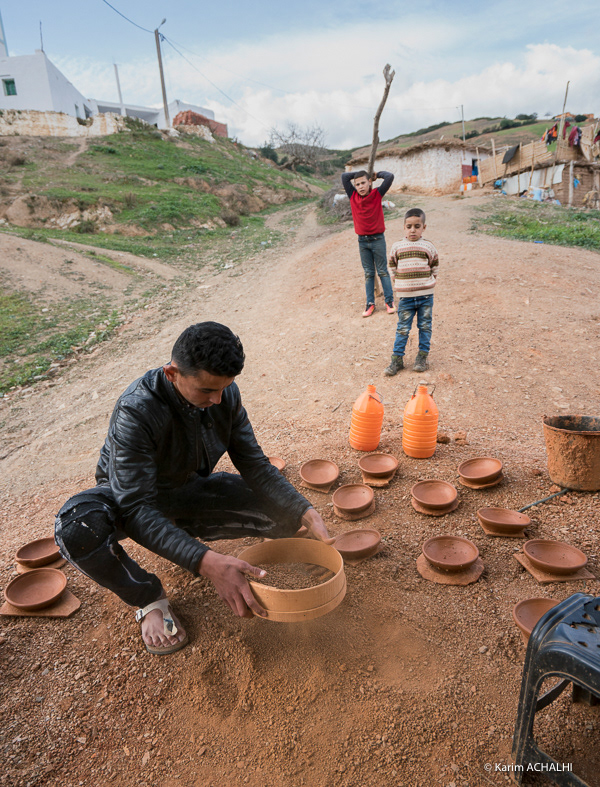
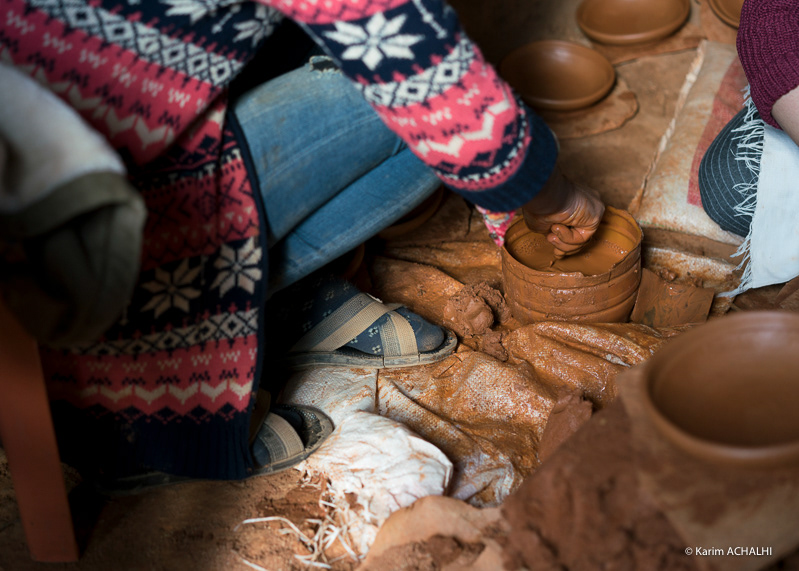
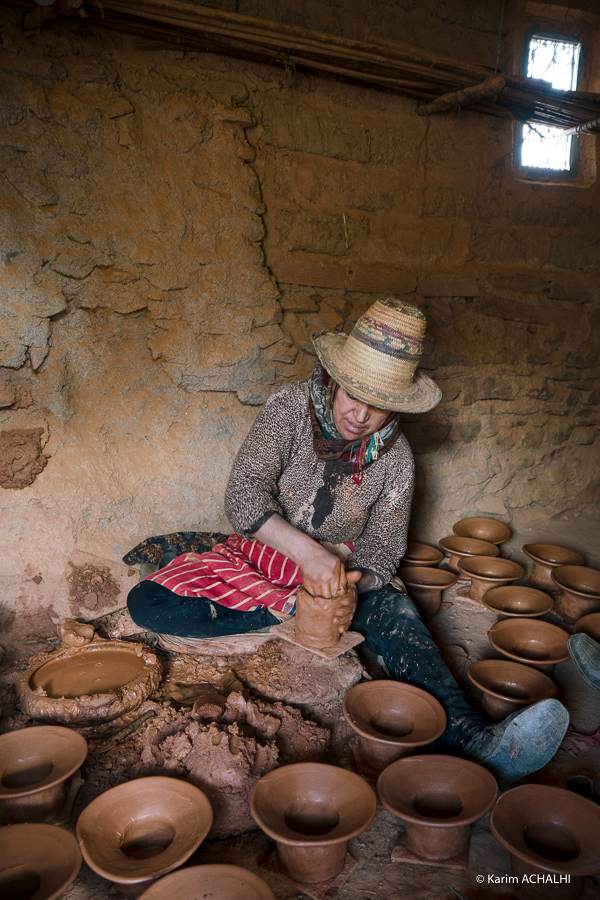


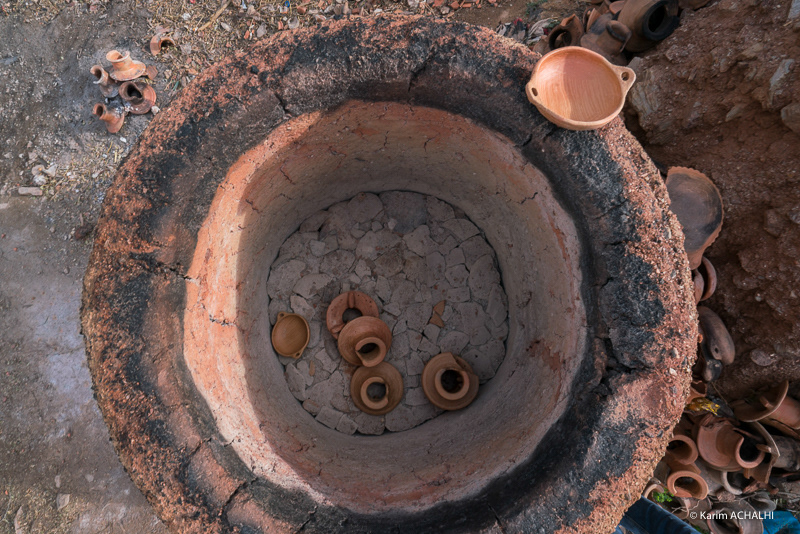
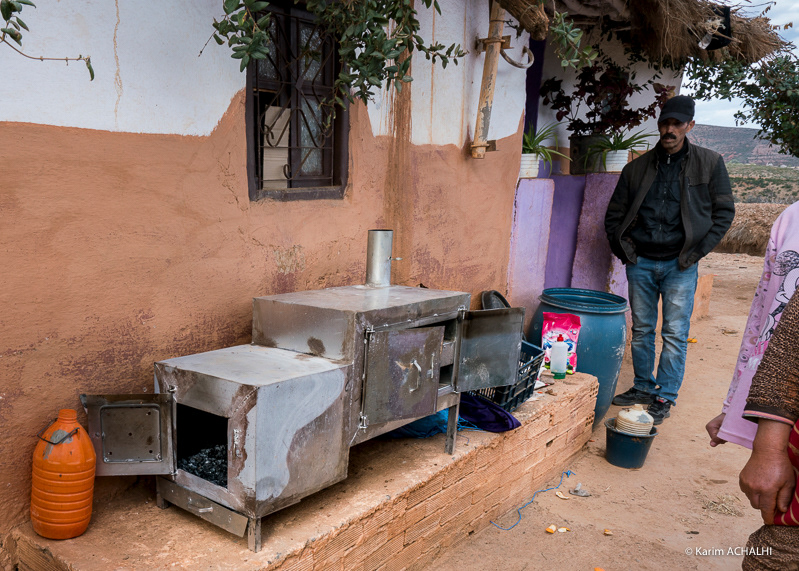
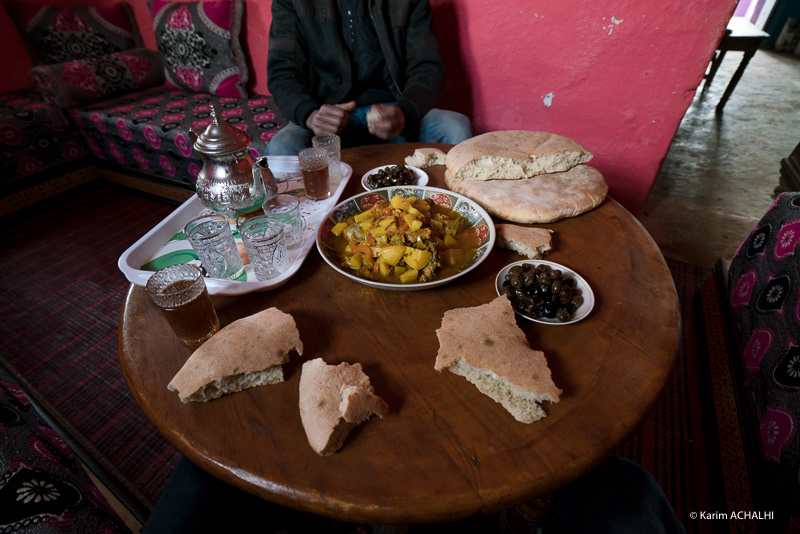
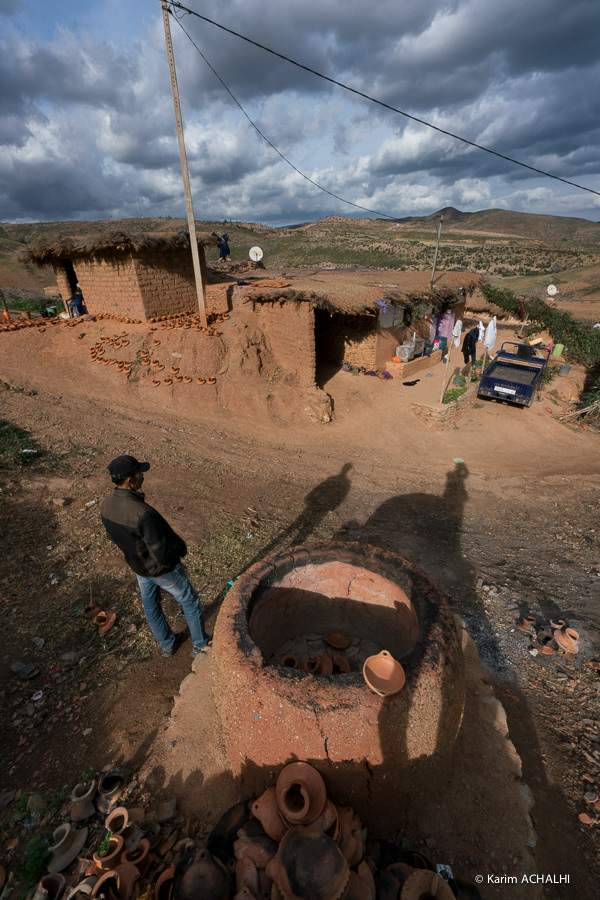

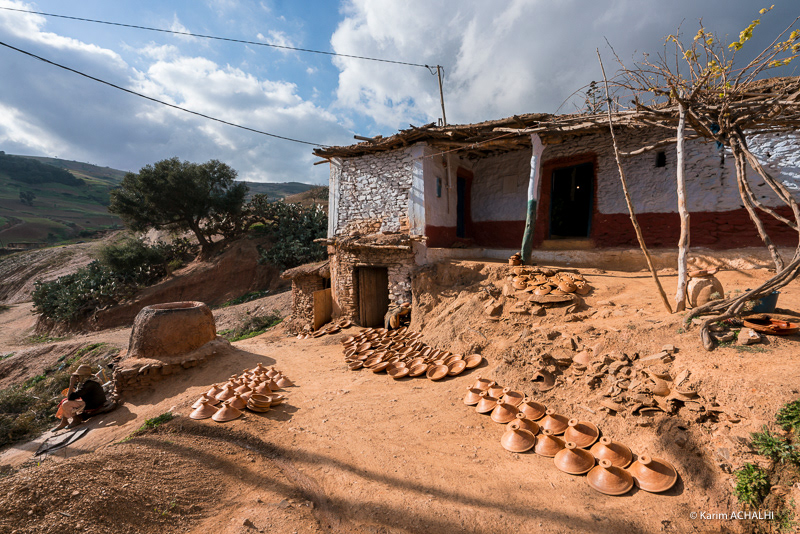
For image licensing or print enquiries, please contact me at: karim.achalhi@gmail.com
For other pictures, backstage and updates ..., check out my account INSTAGRAM.
